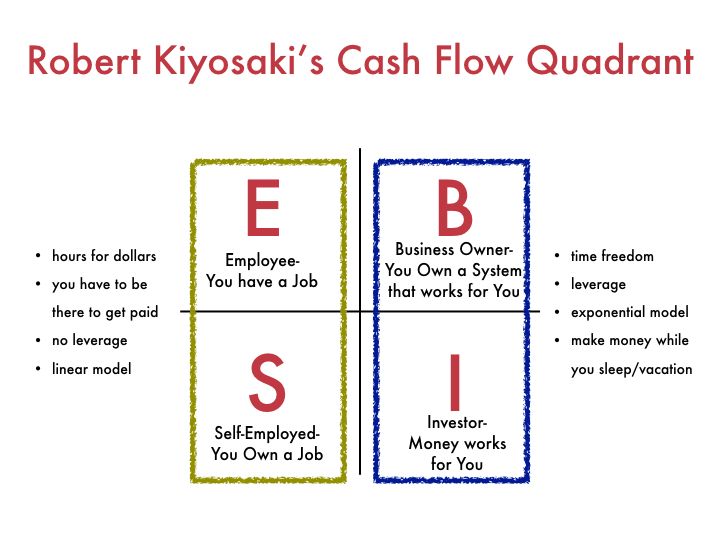The Self-Employment Dilemma
I love being a psychotherapist. I believe it’s what I was meant to do. It allows me to use the sum total of my knowledge and life experiences to serve others in a unique way. In the framework of Gaye Hendricks (The Big Leap), it’s within my “Zone of Genius.”
I became a psychotherapist after 17 years of co-owning and operating another service business with my husband, so I was clear from the beginning that my goal was to be in private practice. I am an entrepreneur at heart; more comfortable being my own boss than being an employee.
Being in private practice technically means I’m self-employed – or a sole proprietor. If you’re familiar with being self-employed, you know the up-side and the down-side. The up-side includes being able to create a structure that suits me: set my own hours, fees and client load; decide who I will serve, the modalities I offer and when I will take time off.
The down-side is that being self-employed means I’m trading hours for dollars. I get paid only when I see a client. I don’t get paid when I’m doing case notes, scheduling, correspondence, marketing, website maintenance, networking, office organizing, blog writing or taking time off. If I’m not in the office, I’m not making money – period. If you’re self-employed this is true for you too.
There was a time when I thought of being self-employed as having a business. It wasn’t until I read the work of Robert Kiyosaki’s Cash Flow Quadrant that I realized how different they really are because being self-employed is not owning a business – it’s owning your job. I’m going to describe it briefly here but I highly recommend reading the book if this is a new concept for you. The Cash Flow Quadrant looks like this:
Kiyosaki uses the quadrant to highlight the four ways of making money: by being an Employee, being Self-Employed, owning a Business or being an Investor.
We are all familiar with what it means to be an employee and I have highlighted the pros and cons of being self-employed. What these options on the left side of the quadrant have in common is that they both involve trading hours for dollars. What this means, among other things, is that your income is capped by the available hours for working and that there are no assets when you are no longer working.
On the right side of the quadrant are the options of owning a Business or being an Investor. History has proven that the right side is where real wealth is made because both investing and owning a business create residual income. Residual (or passive) income refers to the ability to make money more than once on the original effort; think book royalties, TV reruns or insurance premiums.
Most of us have participated in or at least understand the concept of investing; leveraging money that you have earned from original effort to make more money. Stocks, bonds and real estate are a few examples of investing.
Owning a business means you have employees and a system to leverage your time and effort. Having employees effectively multiplies the work hours you have in a day. Having a system means that the business is not solely dependent upon you to operate or create income. It means that you can make money whether or not you are in the office, and that you have an asset to sell when you will no longer be working. This is the distinction between being self-employed and owning a business that really hit me between the eyes.
I mentioned that before I became a therapist I was in business with my husband for 17 years. When we were ready for a life change, we were able to sell that business and finance a new life for our family. It was amazing! It created opportunities that we never would have had if we had both been employees and chose to make that change. That was when I first realized the power of being a business owner. It gave us freedom and choice.
So from a business perspective, when I contrast that experience to the reality of my private practice, it really comes up short. While I love my work, unless I want to create a mental health clinic and hire employees, my practice makes no money without me and I will have no asset to sell when I am done working. I will be reliant on whatever retirement plan I have created for myself or I will need to continue working.
WHAT TO DO?
I asked myself this question about seven years ago when Kyosaki’s Cash Flow Quadrant helped me gain clarity about my future. For me, I decided that I wasn’t interested in building a mental health clinic and I like having my private practice. So I began to explore options for starting a business with the power to create an additional income stream – and more importantly – residual income that could support me when I’m ready to close my therapy practice.
I wanted to find a business that would marry well with the demands of my private practice and my personal interest in health and wellness. I was aware of the costs of having a brick and mortar business as I’d already done that. I didn’t want to make that kind of investment in this chapter of my life. Besides, I wanted something that would be flexible and portable; something I could build alongside my practice.
Looking back I am amazed at how we are presented with opportunities when we are ready for them. Through a couple of good friends I was introduced to the direct sales business model (also known as network marketing). As much as I had never imagined myself working in sales of any kind, I really respected these smart, successful women and was curious about what they knew that I didn’t. So I decided to find out.
As I delved into learning about professionally done network marketing I discovered some surprising things:
- that it offers the greatest income potential for the lowest investment
- that it provides a proven system of business (facilities, production, quality control, shipping, customer service, research and development)
- that network marketing offers business leverage, portability and residual income
- that it has the flexibility to be done full time or part time to fit with current work
- that network marketing is taught in the business school at Harvard University
- that Robert Kiyosaki considers network marketing The Business of the 21st Century (a book I highly recommend)
- that it is literally changing how business is done across the globe (178 billion dollars in sales in 2013)
- that professional network marketing is done with integrity and a service mindset
In the face of such evidence it was hard to hang onto my preconceived ideas and fears. I realized that network marketing offered all of the things I was looking for in a business.
I HAD FOUND THE SOLUTION.
Now the question was which business to align with? As I continued my exploration I learned four principles for evaluating a network marketing business:
- Does it have a unique and consumable product?
- Is the product aligned with a growing trend?
- Is the company credible, stable and experienced?
- Does it offer a sound and fair compensation plan?
While I could say a lot about each of these principles, the bottom line is that they were powerful in guiding me toward a clear and conscious business decision. I’m grateful to have found a company that more than satisfies all of these requirements. Seven years later I can honestly say that owning a network marketing business has taught me a lot about business, partnership, teamwork and service. And that experience has enriched my private practice as well.
I share my “self-employment dilemma” because I know I’m not alone. If you can relate to my journey and would like to know about the company that I work with, I’d love to continue the conversation with you. Whether you want to pay off some debt, move out of your job, or like me, you’re thinking about retirement, discover what a great network marketing company can do for you.
CONTACT ME HERE to learn more. Your future may depend on it.
Celebrating financial freedom,








You go! I’m in! Brave heart.
I have read some of Roberts stuff and would like to here more about what you are offering 😊